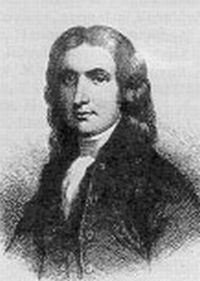One of the first rights to be protected in early America was the right of conscience – the right to believe differently on issues of religious faith. As John Quincy Adams explained, this right was a product of Christianity:
Jesus Christ. . . . came to teach and not to compel. His law was a Law of Liberty. He left the human mind and human action free. 1
Early American legal writer Stephen Cowell (1800-1872) agreed:
Nonconformity, dissent, free inquiry, individual conviction, mental independence, are forever consecrated by the religion of the New Testament. 2
President Franklin D. Roosevelt likewise declared:
We want to do it the voluntary way – and most human beings in all the world want to do it the voluntary way. We do not want to have the way imposed. . . . That would not follow in the footsteps of Christ. 3
The Scriptures teach that there will be differences of conscience (cf. 1 Corinthians 8) and that if an individual “wounds a weak conscience of another, you have sinned against Christ” (v. 12). We are therefore instructed to respect the differing rights of conscience (v. 13). (See also I Corinthians 10:27-29.) Extending toleration for the rights of conscience is urged throughout the New Testament. (See also Romans 14:3, 15:7, Ephesians 4:2, Colossians 3:13, etc.)
Leaders who knew the Scriptures therefore protected those rights. For example, in 1640, the Rev. Roger Williams established Providence, penning its governing document declaring:
We agree, as formerly hath been the liberties of the town, so still, to hold forth liberty of conscience. 4
Similar protections also appear in the 1649 Maryland “Toleration Act,” 5 the 1663 Charter for Rhode Island, 6 the 1664 Charter for Jersey, 7 the 1665 Charter for Carolina, 8 the 1669 Constitutions of Carolina, 9 the 1676 Charter for West Jersey, 10 the 1701 Charter for Delaware, 11 and the 1682 Frame of Government for Pennsylvania. 12 John Quincy Adams affirmed that: “The transcendent and overruling principle of the first settlers of New England was conscience.” 13
Then when America separated from Great Britain in 1776 and the states created their very first state constitutions, they openly acknowledged Christianity and jointly secured religious toleration, non-coercion, and the rights of conscience. For example, the 1776 constitution of Virginia declared:
That religion, or the duty which we owe to our Creator and the manner of discharging it, can be directed only by reason and conviction, not by force or violence; and therefore all men are equally entitled to the free exercise of religion according to the dictates of conscience; and that it is the mutual duty of all to practice Christian forbearance, love, and charity towards each other. 14
Similar clauses appeared in the constitutions of New Jersey (1776), 15 North Carolina (1776), 16 Pennsylvania (1776), 17 New York (1777), 18 Vermont (1777), 19 South Carolina (1778), 20 Massachusetts (1780), 21 New Hampshire (1784), 22 etc. Today, the safeguard for the rights of conscience pioneered by Christian leaders is a regular feature of state constitutions. 23
The Founding Fathers were outspoken about the importance of this God-given inalienable right. For example, signer of the Constitution William Livingston declared:
Consciences of men are not the objects of human legislation. . . . [H]ow beautiful appears our [expansive] constitution in disclaiming all jurisdiction over the souls of men, and securing (by a never-to-be-repealed section) the voluntary, unchecked, moral suasion of every individual. 24
And John Jay, the original Chief Justice of the U. S. Supreme Court, similarly rejoiced that:
Security under our constitution is given to the rights of conscience and private judgment. They are by nature subject to no control but that of Deity, and in that free situation they are now left. 25
President Thomas Jefferson likewise declared that the First Amendment was an “expression of the supreme will of the nation in behalf of the rights of conscience.” 26
But President Obama disagrees with what for four centuries in American history has formerly been an inalienable right. He has specifically singled out and attacked the rights of religious and moral conscience, seeking to coerce dissenters into accepting his own beliefs. While Biblical teachings result in protection for differences of opinion on religious issues, secularists demand conformity of belief and practice to their own secular standards; they are especially intolerant of any differences that stem from Biblical faith.
While the President has targeted the Catholic Church for its religious beliefs, his attacks on religious conscience were ongoing, beginning shortly after he first took office when he first announced his plans to repeal religious conscience protection for medical workers. (We have posted on our website a piece showing the extreme and consistent hostility of this President against Biblical faith and values. As proven by his own actions and words, he is the most anti-Biblical president in American history.)
1 John Quincy Adams, A Discourse on Education Delivered at Braintree, Thursday, October 24th, 1839 (Boston: Perkins & Marvin, 1840), 17-18.
2 Stephen Colwell, Politics for American Christians: A World upon our Example as a Nation, our Labour, our Trade, Elections, Education, and Congressional Legislation (Philadelphia: Lippincott, Grambo & Co. 1852), 82.
3 “Franklin D. Roosevelt, “Christmas Greeting to the Nation,” American Presidency Project, December 24, 1940, https://www.presidency.ucsb.edu/node/209414.
4 “Plantation Agreement at Providence,” The Avalon Project, August 27 – September 6, 1640, https://avalon.law.yale.edu/17th_century/ri01.asp.
5 William MacDonald, Select Charters and Other Documents Illustrative of American History 1606-1775 (New York: MacMillan Company, 1899), 104-106.
6 “Plantation Agreement at Providence August 27 – September 6, 1640,” The Federal and State Constitutions, Colonial Charters and Other Organic Laws, ed. Francis Newton Thorpe (Washington: Government Printing Office, 1909), VI:3211; “Charter of Rhode Island and Providence Plantations,” The Avalon Project, July 15, 1663, https://avalon.law.yale.edu/17th_century/ri01.asp.
7 “The Concession and Agreement of the Lords Proprietors of the Province of New Caesarea, or New Jersey,” The Avalon Project, 1664, https://avalon.law.yale.edu/17th_century/nj05.asp.
8 “Charter of Carolina,” The Avalon Project, June 30, 1665, https://avalon.law.yale.edu/17th_century/nc03.asp.
9 “Fundamental Constitution of Carolina,” The Avalon Project, March 1, 1669, https://avalon.law.yale.edu/17th_century/nc05.asp.
10 “The Charter or Fundamental Laws of West New Jersey,” The Avalon Project, 1676, https://avalon.law.yale.edu/17th_century/nj05.asp.
11 “Charter of Delaware,“ The Avalon Project, 1701, https://avalon.law.yale.edu/18th_century/de01.asp.
12 “ Frame of Government of Pennsylvania,“ The Avalon Project, May 5, 1682, https://avalon.law.yale.edu/17th_century/pa04.asp.
13 John Quincy Adams, A Discourse on Education Delivered at Braintree, Thursday, October 24th, 1839 (Boston: Perkins & Marvin, 1840), 28.
14 “Constitution of Virginia: Bill of Rights,” The American’s Guide: Comprising the Declaration of Independence; the Articles of Confederation; the Constitution of the United States, and the Constitutions of the Several States Composing the Union (Philadelphia: Hogan & Thompson, 1845), 180.
15 “Constitution of New Jersey,” The Avalon Project, 1776, https://avalon.law.yale.edu/18th_century/nj15.asp.
16 Constitutions of the Several Independent States of America (Boston: Norman & Bowen, 1785), 132.
17 Constitutions of the Several Independent States of America (Boston: Norman & Bowen, 1785), 77.
18 “The Constitution of New York,” The Avalon Project, April 20, 1777, https://avalon.law.yale.edu/18th_century/ny01.asp 1777.
19 The Federal and State Constitutions, Colonial Charters, and Other Organic Laws, 3d. Francis Newton Thorpe (Washington: Government Printing Office, 1909), VI:3740.
20 Constitutions of the Several Independent States of America, (Boston: Norman & Bowen, 1785), 152-154.
21 Constitutions of the Several Independent States of America (Boston: Norman & Bowen, 1785), 6.
22 Constitutions of the Several Independent States of America (Boston: Norman & Bowen, 1785), 3-4.
23 “State Policies in Brief: Refusing to Provide Health Services,” Guttmacher Institute, March 1, 2012, https://www.guttmacher.org/statecenter/spibs/spib_RPHS.pdf.
24 William Livingston, The Papers of William Livingston, eds. Carl E. Prince, et al (Trenton: New Jersey Historical Commission, 1980), 2:235-237, writing as “Cato,” February 18, 1778.
25 Benjamin F. Morris, Christian Life and Character of the Civil Institutions of the United States, Developed in the Official and Historical Annals of the Republic (Philadelphia: George W. Childs, 1864), 152.
26 Thomas Jefferson to Messrs. Nehemiah Dodge, Ephraim Robbins, and Stephen S. Nelson, A Committee of the Danbury Baptist Association, in the State of Connecticut, January 1, 1802 Writings of Thomas Jefferson, ed. Albert Ellery Bergh (Washington D.C.: Thomas Jefferson Memorial Association, 1904), XVI:281-282.
* This article concerns a historical issue and may not have updated information.
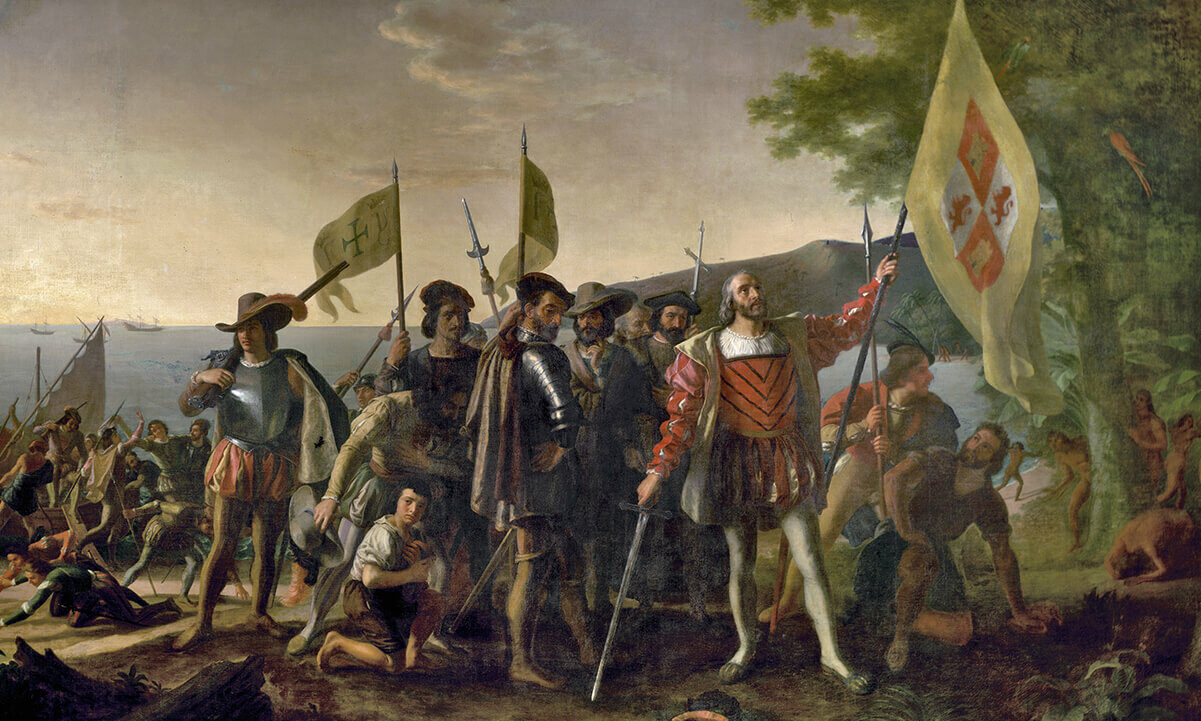
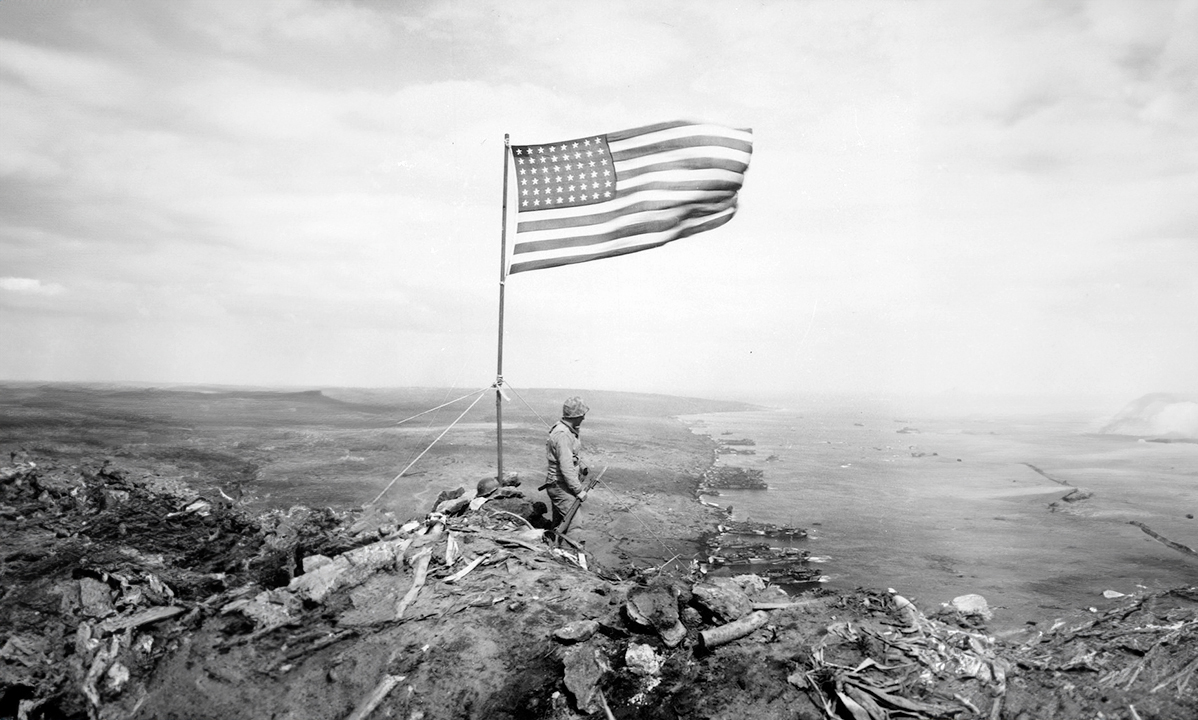
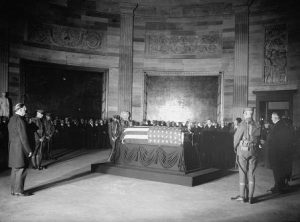 This holiday (originally known as Armistice Day) was established to remember the 1918 signing of the Armistice Treaty and to honor the heroes of World War I.
This holiday (originally known as Armistice Day) was established to remember the 1918 signing of the Armistice Treaty and to honor the heroes of World War I. 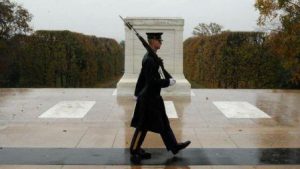 On the morning of November 11th, this soldier was given a military procession to Arlington National Cemetery and buried at what is known today as the
On the morning of November 11th, this soldier was given a military procession to Arlington National Cemetery and buried at what is known today as the 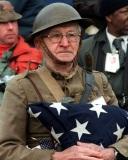 are willing to sacrifice their lives for our freedom should be celebrated and venerated.
are willing to sacrifice their lives for our freedom should be celebrated and venerated.

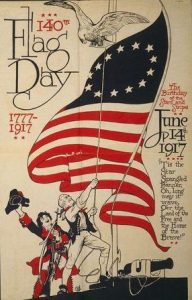 June 14th is Flag Day which commemorates the day in 1777 when the Continental Congress passed a resolution “that the flag of the thirteen United States be thirteen stripes, alternate red and white; that the union be thirteen stars, white in a blue field, representing a new constellation.”
June 14th is Flag Day which commemorates the day in 1777 when the Continental Congress passed a resolution “that the flag of the thirteen United States be thirteen stripes, alternate red and white; that the union be thirteen stars, white in a blue field, representing a new constellation.”
 I have lived, Sir, a long time, and the longer I live, the more convincing proofs I see of this truth- that God governs in the affairs of men. And if a sparrow cannot fall to the ground without His notice, is it probable that an empire can rise without His aid? We have been assured, Sir, in the sacred writings, that “except the Lord build the House they labor in vain that build it.” I firmly believe this; and I also believe that without His concurring aid we shall succeed in this political building no better than the Builders of Babel.
I have lived, Sir, a long time, and the longer I live, the more convincing proofs I see of this truth- that God governs in the affairs of men. And if a sparrow cannot fall to the ground without His notice, is it probable that an empire can rise without His aid? We have been assured, Sir, in the sacred writings, that “except the Lord build the House they labor in vain that build it.” I firmly believe this; and I also believe that without His concurring aid we shall succeed in this political building no better than the Builders of Babel.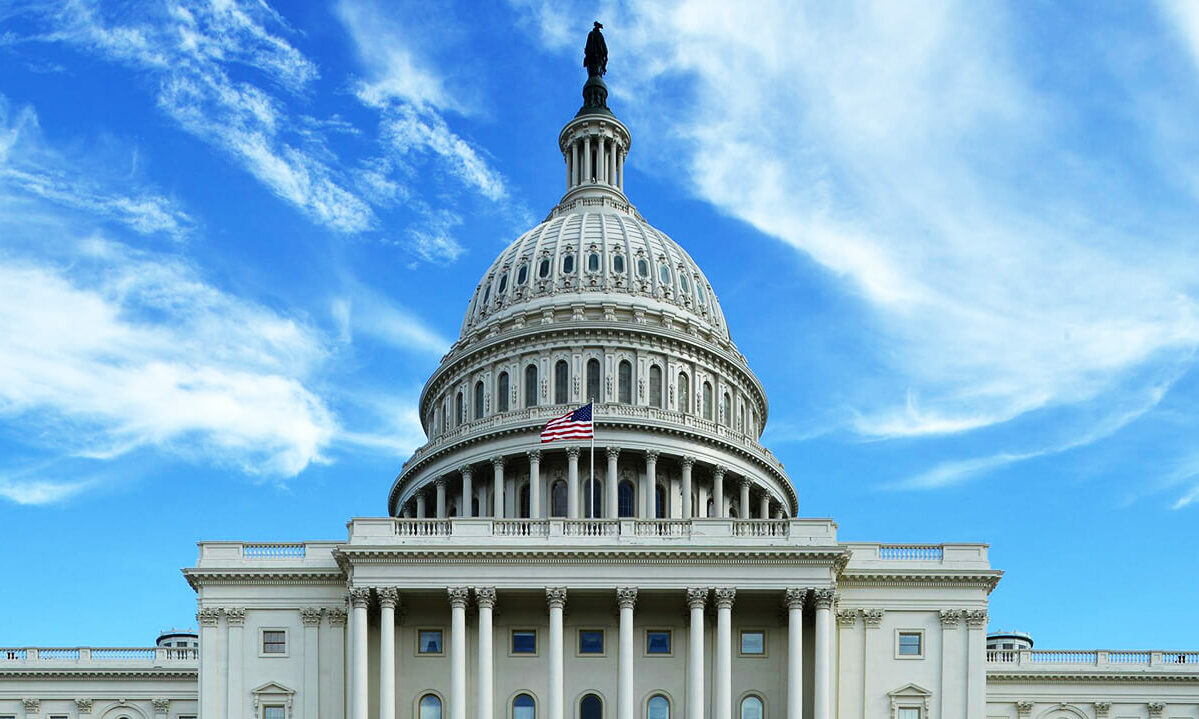

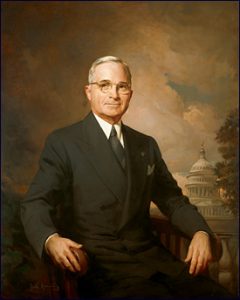 Since returning home, I have been reading again in our family Bible some of the passages which foretold this night. . . . We miss the spirit of Christmas if we consider the Incarnation as an indistinct and doubtful, far-off event unrelated to our present problems. We miss the purport of Christ’s birth if we do not accept it as a living link which joins us together in spirit as children of the ever-living and true God. In love alone – the love of God and the love of man – will be found the solution of all the ills which afflict the world today.
Since returning home, I have been reading again in our family Bible some of the passages which foretold this night. . . . We miss the spirit of Christmas if we consider the Incarnation as an indistinct and doubtful, far-off event unrelated to our present problems. We miss the purport of Christ’s birth if we do not accept it as a living link which joins us together in spirit as children of the ever-living and true God. In love alone – the love of God and the love of man – will be found the solution of all the ills which afflict the world today.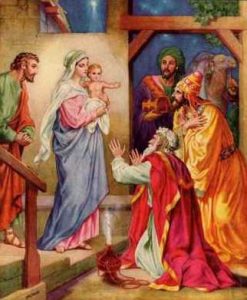 Through Jesus Christ the world will yet be a better and a fairer place. This faith sustains us today as it has sustained mankind for centuries past. This is why the Christmas
Through Jesus Christ the world will yet be a better and a fairer place. This faith sustains us today as it has sustained mankind for centuries past. This is why the Christmas 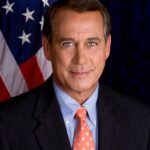 Though winter is upon us, the Christmas tree flourishes as a symbol of everlasting life. That life and light, of course, is Christ, whose birth to Mary fulfilled a prophecy of joy and salvation. Out in the fields where the shepherds slept, the angels broke the silence by singing, “Glory to God in the highest, and on Earth peace, goodwill toward men.” We best serve this story by serving one another . . . by showing it is more blessed to give than to receive, especially when so many of our fellow citizens are without jobs and in need.
Though winter is upon us, the Christmas tree flourishes as a symbol of everlasting life. That life and light, of course, is Christ, whose birth to Mary fulfilled a prophecy of joy and salvation. Out in the fields where the shepherds slept, the angels broke the silence by singing, “Glory to God in the highest, and on Earth peace, goodwill toward men.” We best serve this story by serving one another . . . by showing it is more blessed to give than to receive, especially when so many of our fellow citizens are without jobs and in need. 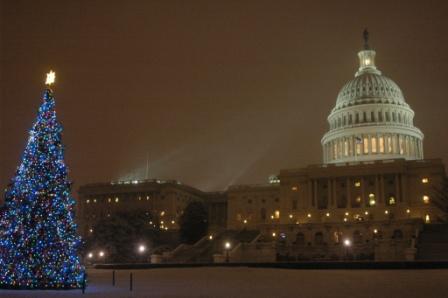 spirit, always bringing us closer to each other and closer to the peace of which the angels sang. So on behalf of my wife, Debbie, our two girls, my 11 brothers and sisters, and all the Boehners, I wish one and all a very Merry Christmas.
spirit, always bringing us closer to each other and closer to the peace of which the angels sang. So on behalf of my wife, Debbie, our two girls, my 11 brothers and sisters, and all the Boehners, I wish one and all a very Merry Christmas.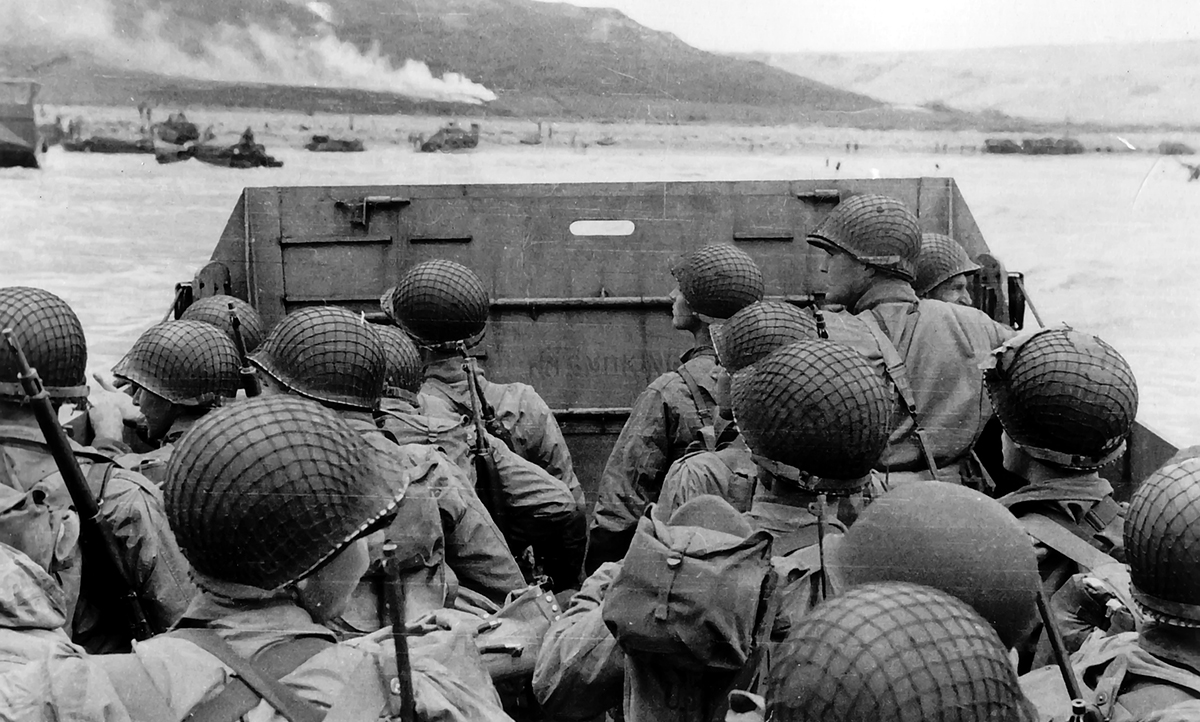
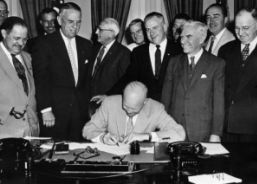 But in 1954, following both WWII and the Korean War, President Eisenhower signed an act renaming the holiday Veterans Day
But in 1954, following both WWII and the Korean War, President Eisenhower signed an act renaming the holiday Veterans Day 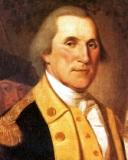 But veterans were respected and honored long before any official holiday was established, including by George Washington in his June 8, 1783
But veterans were respected and honored long before any official holiday was established, including by George Washington in his June 8, 1783 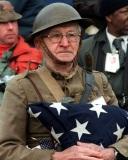 On this special day when we pause to reflect on the sacrifices made across the years by men and women willing to lay down their lives to protect and defend our Constitution, our freedoms, and our way of life, let’s be proactive in our gratitude. Thank a veteran or active military member in uniform, attend a Veterans Day parade, pray for the military families, and remind those around you of the
On this special day when we pause to reflect on the sacrifices made across the years by men and women willing to lay down their lives to protect and defend our Constitution, our freedoms, and our way of life, let’s be proactive in our gratitude. Thank a veteran or active military member in uniform, attend a Veterans Day parade, pray for the military families, and remind those around you of the 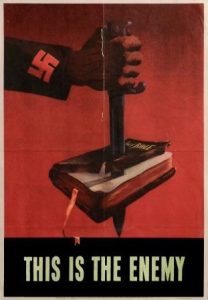
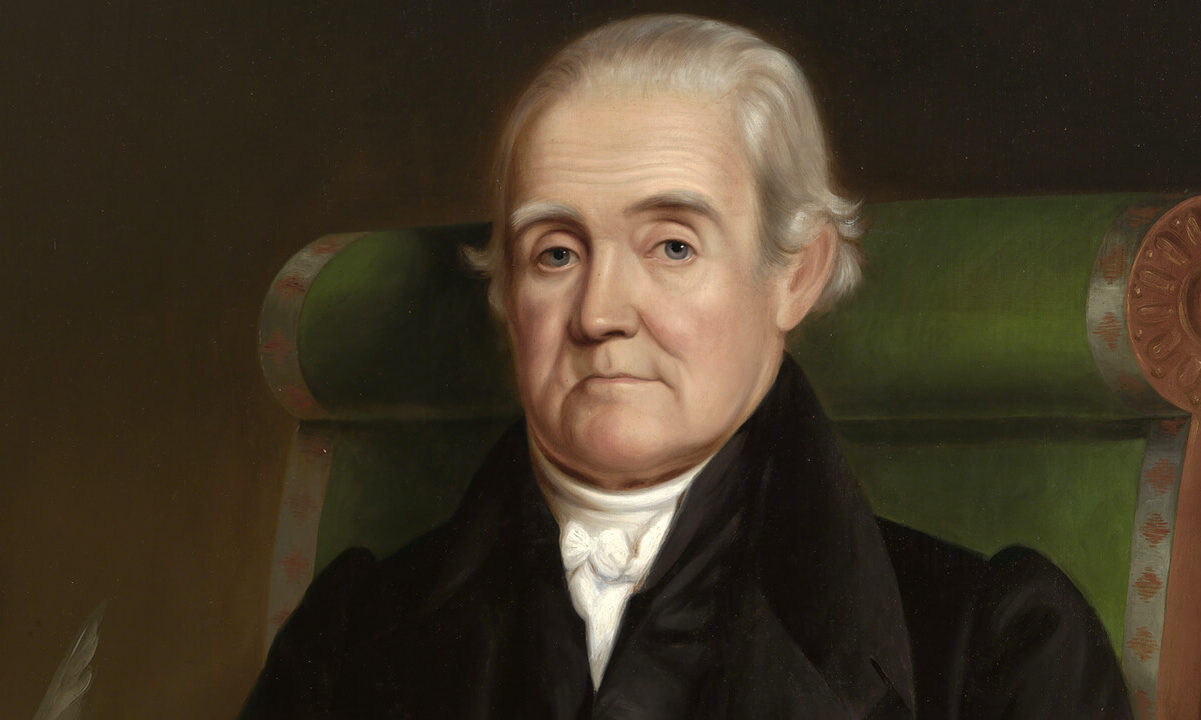
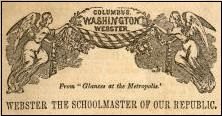 After completing college, he became a schoolteacher.
After completing college, he became a schoolteacher. 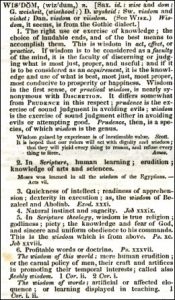
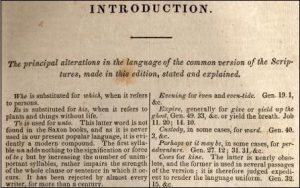 Five years later, taking what he had learned from his extensive work on the dictionary, Noah published an updated version of the King James Bible, replacing outdated ancient words with their more modern meanings. For example, he replaced the King James word “kine” with its modern equivalent, “cow or cattle.” Noah believed strongly in the inerrancy of God’s Word, so wanting to ensure that he had changed none of the doctrinal meanings of the Scriptures with his word changes, in the
Five years later, taking what he had learned from his extensive work on the dictionary, Noah published an updated version of the King James Bible, replacing outdated ancient words with their more modern meanings. For example, he replaced the King James word “kine” with its modern equivalent, “cow or cattle.” Noah believed strongly in the inerrancy of God’s Word, so wanting to ensure that he had changed none of the doctrinal meanings of the Scriptures with his word changes, in the 
